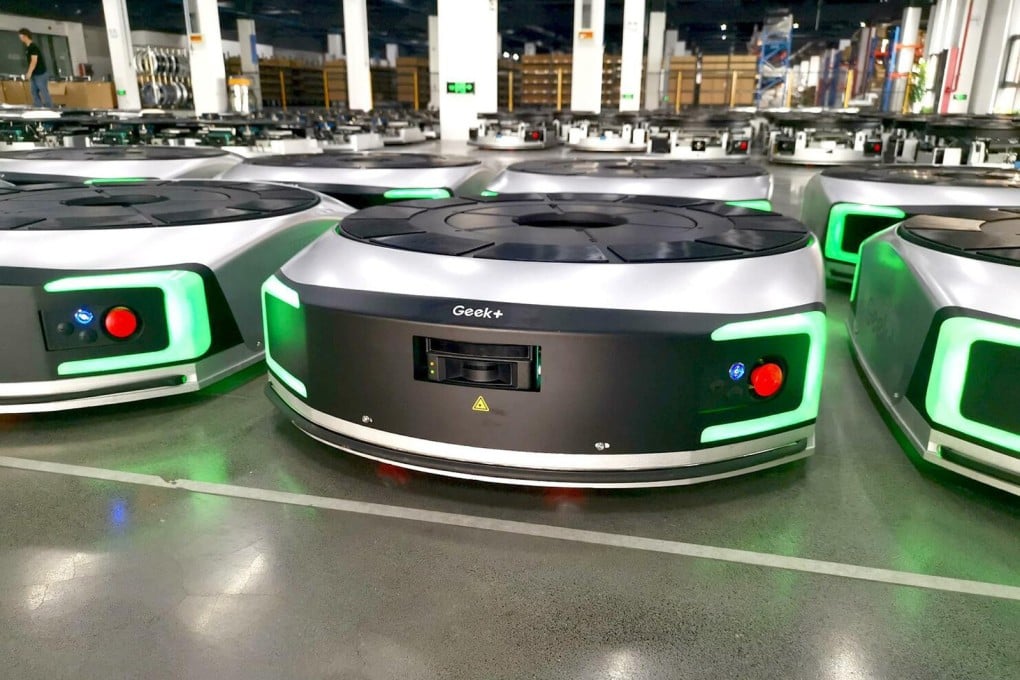Robotics start-up Geek+ is leading China’s push into smart logistics to support e-commerce, manufacturing
- Beijing-based Geek+ has deployed more than 7,000 logistics robots for a new generation of almost zero-labour, automated warehouses
- Worldwide sales of logistics robots are forecast to reach US$22.5 billion in 2022, up from an estimated US$5.7 billion this year

Four-year-old start-up Geek+ Technology has become a rising star in China’s automation revolution, as the Beijing-based company leads the country’s push into logistics robots for the e-commerce and manufacturing sectors.
Geek+, whose major customers include Alibaba Group Holding, courier company SF Express and state-owned carmaker FAW Group, has deployed more than 7,000 robots as well as completed more than 200 smart logistics projects across four continents, according to Zheng Yong, the start-up’s founder and chief executive.
Established in 2015, Geek+ offers four different artificial intelligence-powered robots – picking, moving, sorting and forklift systems – used in a new generation of almost zero-labour, automated warehouses.
“I think we’ve done a good job combining technology with industry applications,” Zheng said in an interview last week. “How to sell it [intelligent logistics] to the consumer and gain even more trust, along with taking on our competitors – that is the challenge that lies ahead.”

Geek+ put that future on display during the launch of its smart factory in Nanjing on September 25. The new facility, designed with an annual production output in excess of 10,000 robots, employs industrial robots, its own AI algorithms and production logistics management system, and other automated programmes to assemble robots.